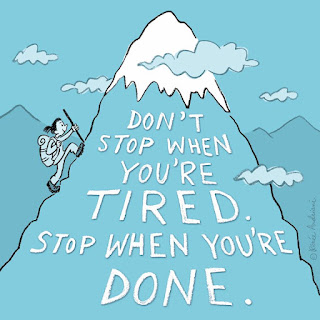Lessons from history: Sioux Indians
I'm always fascinated to read "the other side of the story" regarding historical situations - the viewpoint that is not the familiar one to me, given my land of birth, personal background, culture, etc. What was WWII like for a typical German citizen or soldier? How did the people in Viet Nam view the conflict in their country? What was it like to be Japanese in the aftermath of nuclear attacks? What were the relative viewpoints and motivations of the Confederacy vs. the Union in the US Civil War?
My most recent exposure to "the other side" relates to an event that occurred 145 years ago today and tomorrow - the Battle of the Little Big Horn, June 25–26, 1876. Or, as it was known among the Lakota, the Battle of the Greasy Grass. My view of the events is coming from a book, "The Day the World Ended at Little Bighorn: A Lakota History" by Joseph M. Marshall III. It's a fascinating history of not just the battle, but the events leading up to it, and following.
In addition to more familiar Lakota leaders such as Sitting Bull and Crazy Horse, I've learned about less-familiar leaders such as Chief Gall. In the first attack by the US soldiers, two of his wives and several children were killed as gunfire penetrated the village where they were camped. Gall came to the village to discover his personal loss. He carried the bodies of his family members into their lodge so he could give them proper burial later, then went out and spent the rest of the day fighting the US forces without ever mentioning his personal loss. He was a brilliant strategist and leader, helping direct the ensuing rout of US forces.
This battle was part of the "Great Sioux War of 1876" - which represented the US action against the Lakota Sioux and Northern Cheyenne. The tribes of the Plains Indians were among the last in the US who had not been displaced from their native lands; the east and west regions were far more desirable, and so those territories had long been occupied and the original residents moved to reservations. But gold had been discovered in the Black Hills of western South Dakota, but the long-time residents of the area were unwilling to cede ownership and access. It's impossible to explain or justify the actions of the US invaders from our modern viewpoint; this campaign, like countless other instances of the European colonization, it was based on selfish greed and arrogant views of superiority that created the refusal to recognize the beauty and culture, and the rights, of the existing residents.
Another fascinating insight from the book: there is no word in the Lakota language that corresponds to "authority" in English. You can't "confer" leadership on someone in their view. Their words seen in this context are equivalent to "strong" or "brave" - people naturally want to follow the counsel and leadership of someone who exemplifies the virtues that matter to their survival. But that kind of respect is earned and natural.
I #GiveThanks for courageous examples of these people of the past, who wanted only to defend their families, their homes and lands, and maintain their long-established way of life. My heart aches for how they were treated then, and since. But I am grateful for lessons I can learn from their courage and resilience. There is so much I would like to emulate.




Comments
Post a Comment